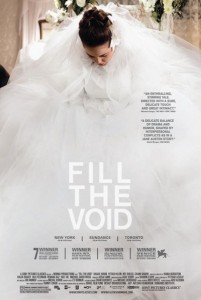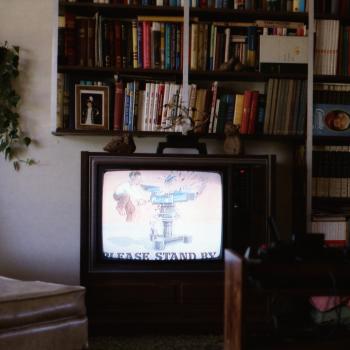 Living on the F train subway line in Brooklyn, I am regularly exposed to one of the more consistently curious sights that New York City has to offer, one that tends to trump those attention-seeking sights that surround it by virtue of its contrasting virtues: the Hasidim, the black-clad ultra-Orthodox Jews who’d rather go unnoticed in our midst.
Living on the F train subway line in Brooklyn, I am regularly exposed to one of the more consistently curious sights that New York City has to offer, one that tends to trump those attention-seeking sights that surround it by virtue of its contrasting virtues: the Hasidim, the black-clad ultra-Orthodox Jews who’d rather go unnoticed in our midst.
From where I’m standing, their disdain for the vanities that drive those other eye-catching strangers on the train who actually want your attention only makes the Hasidim that much more interesting.
All the full-sleeve tattoos, cringe-worthy piercings, and whacky hairdos combined can’t add up to the sight of a single Hasidic man mumbling over the Torah in his broad black fedora and long black coat deep down the infernal New York underground during last week’s brutal heat wave.
From my standpoint, they’re nothing short of fascinating for their steadfast resistance to the mores of the larger culture into which they refuse to be absorbed. Is there anything more radical in our workaholic, super-consumerist day and age than a genuine observance of the Sabbath? I don’t think so.
Of course this resistance generates accusations from the larger culture of extreme insularity, of an untouchable status in the societies where they live and flourish. Such accusations aren’t always without merit, as recent efforts in certain communities to block outside oversight into their own cases of child molestation attest.
Exemption from taxes is one thing; from state law another.
Still, in a society like ours whose church-at-large is generally so assimilated into the dominant culture that witness often falls far below fitness on many of our to-do lists, the sight of the Hasidim dressed for colder weather on a blazing summer day can be one that brings with it equal parts refreshment and rebuke.
But that’s just me.
Hence my nearly instant click on Netflix when my brother recently recommended My Father, My Lord, a small but mighty film and searing domestic drama about the cost of religious devotion to an ultra-Orthodox rabbi’s family of three in today’s Jerusalem.
With a level of understatement totally foreign (pun intended) to contemporary American cinema, the film packs more in a mere eighty minutes than most Hollywood products deliver with twice the running time and monstrously larger budgets.
(If you decide to see the film, and please do, notice among other subtle touches the way that director David Volach renders the Abraham and Isaac theme with such disquieting delicacy that its effect is crushing once you apprehend it.)
Surprisingly, this experience with My Father, My Lord was followed in short order by my chance notice of another such film while trolling the movie listings for something more than summer dreck: Fill the Void, about an ultra-Orthodox family’s struggle with bereavement, freedom, and tradition in modern Tel Aviv.
What in the name of G-d was going on here?
I can’t praise enough Rama Burshtein, the writer/director of Fill the Void who has the double distinction of not only presenting a masterpiece with her debut, but of also being the first Orthodox Israeli woman to helm a feature film.
She would probably shy away from such praise in light of her religion, and the film’s PG rating carries a tag that applies to more than just the question of suggestible content: “Modesty is respected.”
Modesty is respected. And the results blew my mind.
Set in the, yes, insular, but equally expansive world of the Mendelman family and their Haredi community in Tel Aviv, the void in question befalls the clan with the death of the older daughter, Esther, in childbirth on Purim—a tragedy whose ironic import in light of Esther’s biblical namesake is never mentioned by any character because it needn’t be.
These are Jews, after all, children of Job: “The Lord giveth and the Lord hath taken away, blessed be the name of the Lord.”
Or, as community members say to the Mendelmans, in keeping with the tradition of shiva: “May the Lord console you among the other mourners of Zion and Jerusalem.”
Esther’s younger sister, Shira (played by the extraordinary Hadas Yaron), has only just taken her own first step toward marriage and eventual parenthood at the start of the film.
But Shira’s mother, Rivka (the equally extraordinary Irit Sheleg), is desperate not to lose her only grandchild when her grieving but eligible son-in-law, Yochay (the no less extraordinary Yiftach Klein) considers the prospect of a second marriage in Belgium.
Hence the question Rivka poses and the movie’s overarching story: Will Shira fill the void left by Esther to marry her brother-in-law, become mother to her nephew, and keep the family together?
From that point the story unfolds to the most simple but most moving climax in a film that I have seen in a long, long time.
In his glowing review for The New York Times, A.O. Scott writes that the movie “is at times almost unbearably full of feeling and significance.” And not simply feelings of constriction or grim obligation as one might suppose. The three principles of Hasidism being joy, charity and prayer, Bursthein and her incredible cast give each its proper but not exaggerated due. A modest answer to an uninformed audience that might assume the three principles are narrowness, austerity, and tribal law.
Scott goes on to employ two adjectives for the film that defy the kind we might more typically—or stereotypically—associate with Hasidim: “accessible and thrilling.”
Thrilling? Fill the Void is a thriller? Yes, it is. Not technically, according to the narrow genre bandwidth movies must occupy, but emotionally and spiritually speaking.
The next day I made good on a long-standing wish to some day attend a service at a Messianic synagogue. So I fittingly took the F train to one in Manhattan, and the experience filled a certain void in its own right.
That’s a story for the next post.
Bradford Winters is a screenwriter and poet, and works for The Levinson/Fontana Company as a producer and writer in television. He lives in Brooklyn with his wife and three children.











